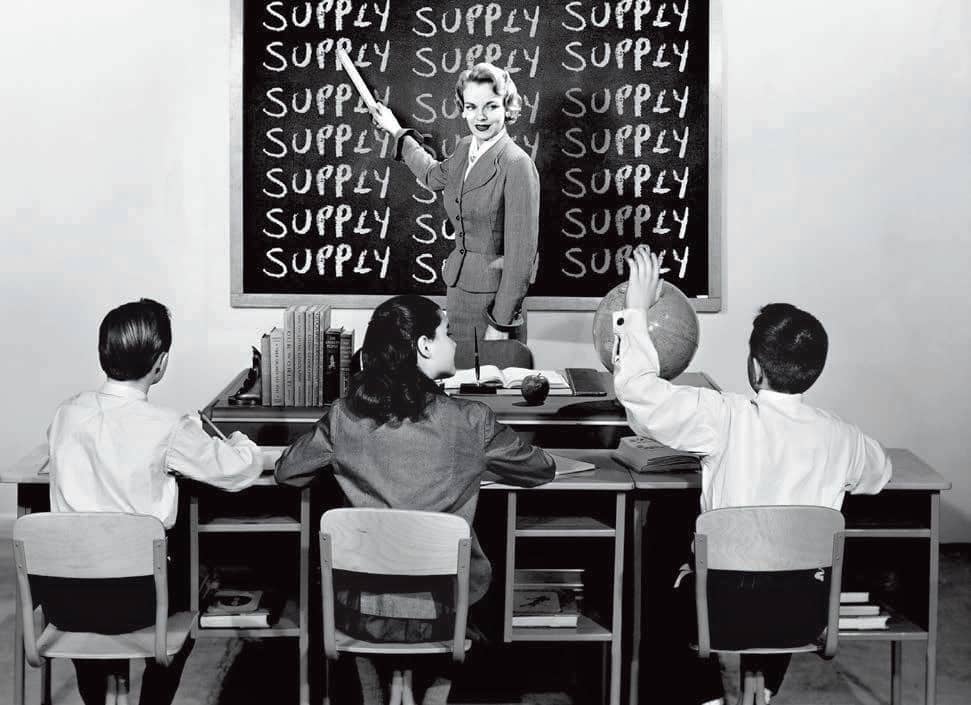
The 2008 financial crash ripped a giant hole in the incomes and wealth of Americans, limiting their ability to afford everything from big-ticket purchases like cars to their rent. The government declined to fill that hole in deference to a superstitious fear of deficits. This kept many millions of U.S. workers on the economy’s sidelines and myriad industrial facilities underutilized. For years, America’s capacity to produce goods and services exceeded consumers’ ability to pay for them.
This was a tragic state of affairs for the U.S. economy but, in some respects, a convenient one for American liberalism. Since the days of LBJ’s Great Society, liberals’ reform ambitions have largely focused on demand-side policy. The Affordable Care Act effectively gives Americans more money to spend on medical services through insurance subsidies. Food stamps give low-income households more money to spend on groceries. Social Security increases seniors’ disposable income.
In a demand-constrained economy, these kinds of policies are free lunches: Since there is spare productive potential, putting cash in people’s pockets not only benefits them directly but also aids the broader economy, as higher consumer spending encourages growth.
Relatedly, in an economy with relatively low inflation—like America’s from 2009 through 2020—the government need not offset new spending with taxes in order to keep prices from shooting through the roof. And that too was very convenient for liberals, who are perennially tasked with reconciling their movement’s expansive vision for the welfare state with Americans’ aversion to higher tax rates.
This story is from the January 02, 2023 edition of New York magazine.
Start your 7-day Magzter GOLD free trial to access thousands of curated premium stories, and 9,000+ magazines and newspapers.
Already a subscriber ? Sign In
This story is from the January 02, 2023 edition of New York magazine.
Start your 7-day Magzter GOLD free trial to access thousands of curated premium stories, and 9,000+ magazines and newspapers.
Already a subscriber? Sign In

The Tao of Steak
Crane Club has a talented chef, big-money backing, and the whiff of a members-only sanctuary. It needs something more.

The Pervert's Drink
Milk is for deviants, from.A Clockwork Orange to Babygirl.

A BUNCH OF NEW START-UPS ARE HYPING THE LONELINESS EPIDEMIC AND ARE OF COURSE, HAPPY TO OFFER SOLUTIONS
IN HER OWN TELLING, every business Radha Agrawal has ever started or project she has dreamed up or mission she has embarked on was born of a persistent, lifelong desire to belong.

The Voice Whisperer
Eric Vetro teaches the stars how to sing for their Oscars.

There Is No Safe Word
How the best-selling fantasy author Neil Gaiman hid the darkest parts of himself for decades.

CRITICS
Kathryn VanArendonk on Severance's second season... Roxana Hadadi on The Last Showgirl... Jasmine Vojdani on Aria Aber's Good Girl.

John Derian's Apartment Is Full of Wonderful Things
Papier-mâché birds, découpage, flea-market finds from Paris, antiques, furniture he designed himself that was inspired by antiques-and more.

The Unknowun Number
Who was the relentless, vicious bully harassing Kendra Licari's teenage daughter?

Eleonora Srugo
The broker became tabloid fodder for a suspected relationship with the mayor. Now, she's the star of yet another real-estate reality show.

Strongman
The tragic legacy of the mourner-in-chief.